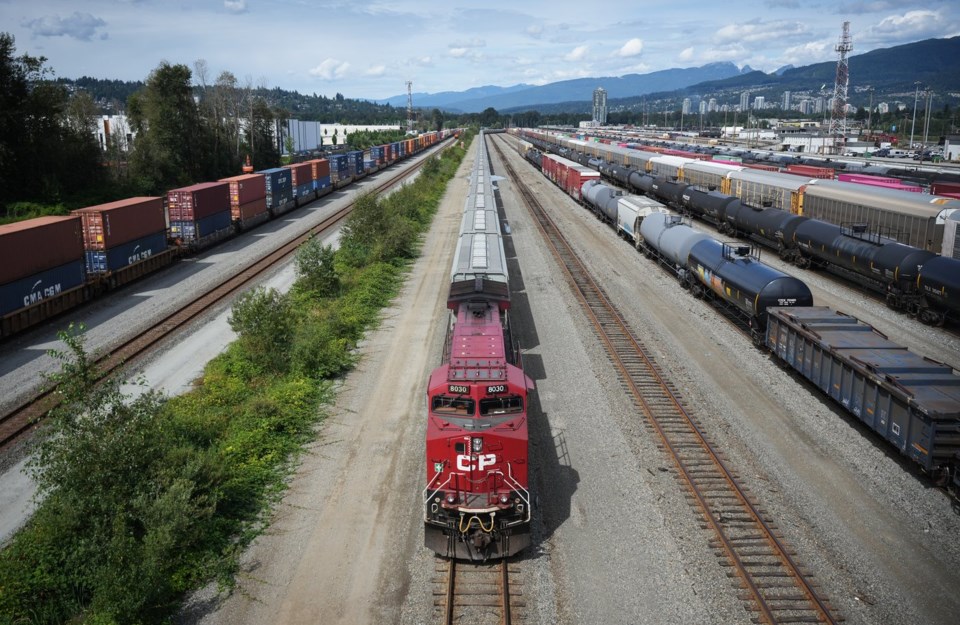VANCOUVER — Business and industry groups are applauding a deal between British Columbia's port employers and supervisors, but say the federal government also needs to take steps to ensure labour stability and Canada's reputation as a reliable trade partner.
Greater Vancouver Board of Trade president Bridgitte Anderson said in a statement that disruptions due to strikes and lockouts at B.C. ports have affected more than $19 billion in trade goods.
Anderson said the federal government should do anything it can to "ensure certainty and stability in our supply chains" moving forward.
"Now more than ever, we need to be clear eyed about our need for trade diversification and to be a reliable trading partner," Anderson said.
Her comments came after the British Columbia Maritime Employers Association and the International Longshore and Warehouse Union Ship and Dock Foremen Local 514 jointly announced a new agreement that extends to March 31, 2027.
A separate deal was signed with longshore workers in August 2023 after a strike, and the two agreements look set to ensure labour peace among thousands of port employees for roughly two years.
The details of the latest agreement have not been released, although the employers association typically posts its deals with both port workers and supervisors to its negotiations website.
The dispute between the employers and Local 514 have been contentious at times, resulting in a lockout last year in what the association had described as a defensive action after the union authorized strike action and planned an overtime ban.
The union said port automation was among its top concerns and was seeking staffing guarantees regardless of the technologies being introduced, while the employers said their offer at the time included a 19.2 per cent wage increase over four years.
Grain Growers of Canada executive director Kyle Larkin said the country must do everything it can to avoid a repeat of labour turmoil in 2024.
In addition to B.C. port employers locking out supervisors, It was a year that saw job action in a dispute involving grain terminal employees, while a railway lockout involving both Canadian National and Canadian Pacific Kansas City snarled cargo traffic.
"There are jurisdictions around the world who have very strong labour relations, but they also have a strong economy," Larkin said. "We need to look at the examples that they have and build on them."
Larkin said that the labour uncertainty of 2024 has not only hurt the movement of goods to existing markets such as the United States and China, but also undermined efforts to diversify grain exports to markets such as Southeast Asia.
"Those customers in markets around the world may — and already have — started looking elsewhere," he said. "And we have major competitors around the word, be it the Brazilians, be it the Australians, be it the Americans and others that we're competing with every day.
"So if we have continued labour disruptions, we'll lose markets around the world. We'll lose customers … I don't know what the silver bullet is, but what I do know is that we need a better path forward so we never have another 2024."
This report by The Canadian Press was first published June 5, 2025.
Chuck Chiang, The Canadian Press




